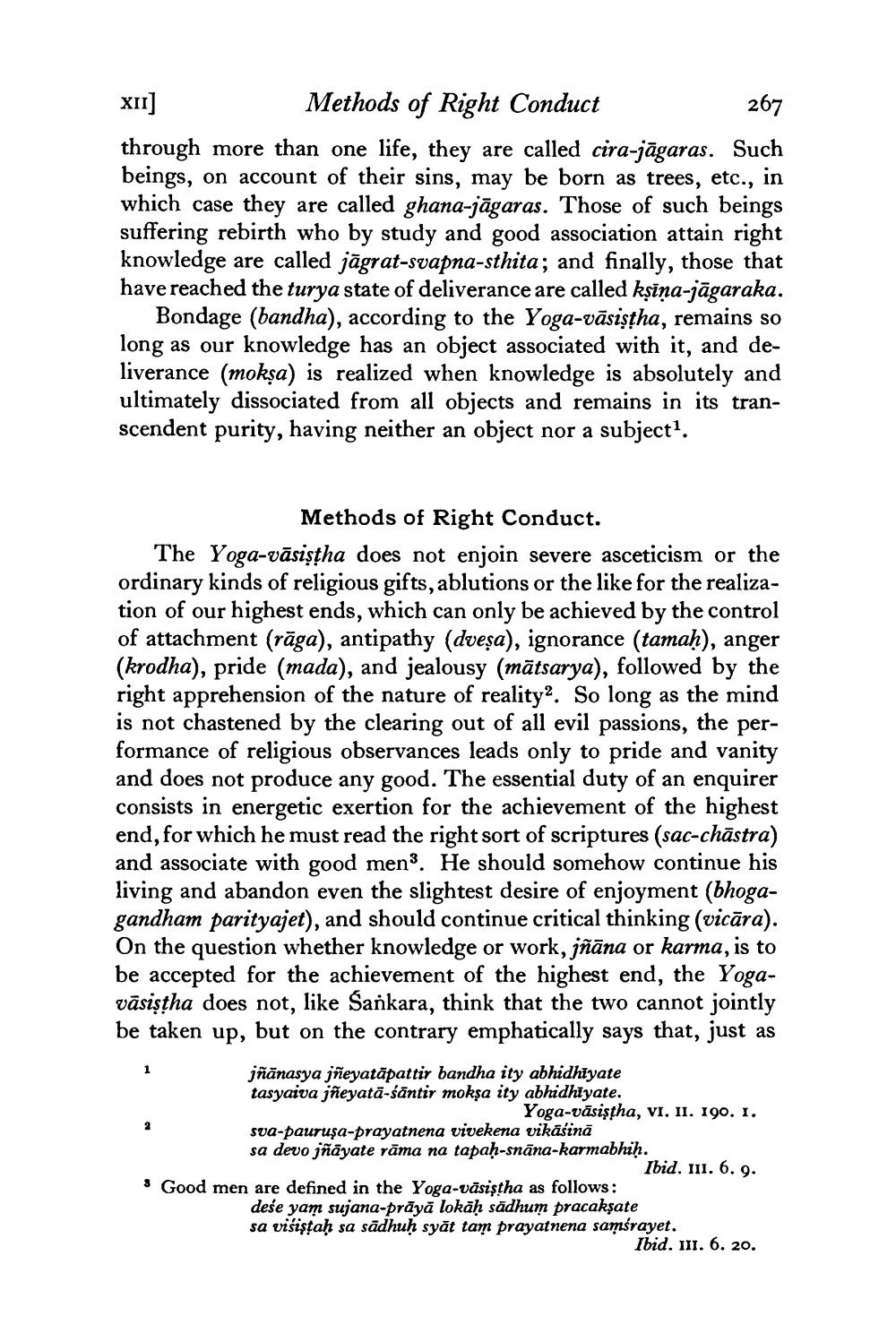________________
XII]
Methods of Right Conduct
267
through more than one life, they are called cira-jāgaras. Such beings, on account of their sins, may be born as trees, etc., in which case they are called ghana-jāgaras. Those of such beings suffering rebirth who by study and good association attain right knowledge are called jāgrat-svapna-sthita; and finally, those that have reached the turya state of deliverance are called kṣina-jāgaraka.
Bondage (bandha), according to the Yoga-vasistha, remains so long as our knowledge has an object associated with it, and deliverance (mokşa) is realized when knowledge is absolutely and ultimately dissociated from all objects and remains in its transcendent purity, having neither an object nor a subject1.
Methods of Right Conduct.
The Yoga-vasiṣṭha does not enjoin severe asceticism or the ordinary kinds of religious gifts, ablutions or the like for the realization of our highest ends, which can only be achieved by the control of attachment (rāga), antipathy (dveṣa), ignorance (tamaḥ), anger (krodha), pride (mada), and jealousy (mātsarya), followed by the right apprehension of the nature of reality2. So long as the mind is not chastened by the clearing out of all evil passions, the performance of religious observances leads only to pride and vanity and does not produce any good. The essential duty of an enquirer consists in energetic exertion for the achievement of the highest end, for which he must read the right sort of scriptures (sac-chāstra) and associate with good men3. He should somehow continue his living and abandon even the slightest desire of enjoyment (bhogagandham parityajet), and should continue critical thinking (vicāra). On the question whether knowledge or work, jñāna or karma, is to be accepted for the achievement of the highest end, the Yogavāsiṣṭha does not, like Sankara, think that the two cannot jointly be taken up, but on the contrary emphatically says that, just as
1
2
jñānasya jñeyatäpattir bandha ity abhidhiyate tasyaiva jñeyatā-śāntir mokṣa ity abhidhiyate.
Yoga-väsistha, VI. II. 190. I.
sva-pauruşa-prayatnena vivekena vikāšinā sa devo jñāyate rama na tapaḥ-snāna-karmabhiḥ.
Ibid. 111. 6. 9.
3 Good men are defined in the Yoga-vasistha as follows: dese yam sujana-prāyā lokāḥ sādhum pracakṣate sa visisṭaḥ sa sadhuḥ syāt tam prayatnena samirayet. Ibid. III. 6. 20.




